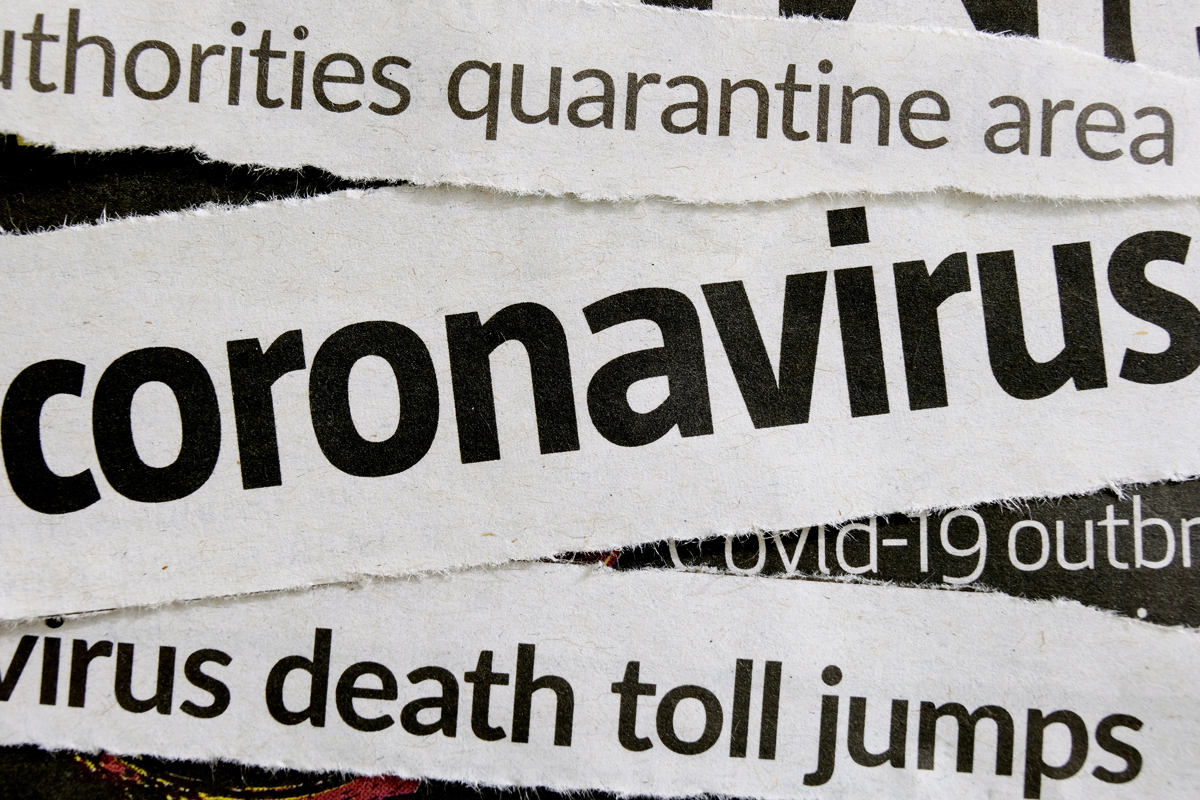We Cannot Blame the Pandemic for Our Lack of Preparation and Utter Inability to Learn from Our Past
History is only useful when we use it to better ourselves, not when we use it to make the claim that we’re better than our ancestors. The things that befell them are likely to befall us as well. We can only control our reaction to such events.
How often has your newsfeed been wrought with headlines that say things like:
“The Pandemic Pushes Millions of Americans into Poverty”
Or
“Cancers Surgeries Delayed as a Result of COVID-19”
Or even
“Coronavirus Puts Tens of Millions of Americans on the Brink of Homelessness from Eviction”
The media continually cites COVID-19 as being at fault for mass unemployment, extreme poverty, and the looming eviction crisis. However, that’s a bit naïve. The novel Coronavirus, also referred to as COVID-19, or more ominously the Pandemic, is, at the end of the day, just a newly discovered infectious disease. It is not unlike other infectious diseases that were once newly discovered. While it can be deadly, it’s not nearly as deadly as a plague.
To put things into context, the bubonic plague for example, proved fatal in 50%-70% of cases at the time of its discovery, and it continues to be deadly 10%-15% of the time now in present day, when treatment is available. The Pneumonic and septicemic plagues are even more pernicious, carrying a mortality rate of nearly 100%. COVID-19, on the other hand, boasts a mortality rate of .002% and this rate is trending downward as time wears on.
This is not to belittle the numerous deaths that have resulted in the wake of the virus.
I use this information to point out that things could have been worse, much worse. And I use that point to show you that we are seriously unprepared (definitely much less prepared than our ancestors were) for a disaster of epic proportions, which is a problem.
Why? Because if there’s one thing we have to learn from history it is that disaster strikes inevitably and unexpectedly. It is both arrogant and foolish for us to simply assume we are above an epic disaster. It is even more foolish for us to assume we could handle a sizeable catastrophe.
We can barely handle a mere new virus.
Our economy is tanking. Hospitals are overwhelmed. Businesses are shuttered. School systems have collapsed. This is not because of the fact that there came a new virus. This is because of our reaction to the virus. And also, importantly, our lack of preparation, our complete and utter inability to plan for things we know have happened that are very likely to happen again.
Currently, our social structure functions a lot like the Titanic.
It floats impeccably over smooth waters, but in our arrogance of believing we are all “unsinkable” we didn’t install enough lifeboats. So, ask yourself this question, when the Titanic was violently thrust into the depths of the ocean, did the newspapers blame the deaths on the iceberg? Did the headlines read:
“Deadly Iceberg Causes Mass Fatalities”
Or
“Largest Ocean Disaster in History Occurs in the Clutches of a Perilous Iceberg”
Of course, they didn’t, because the iceberg wasn’t to blame. It’s pretty much a given that icebergs are part of what’s happening in the ocean. There’s nothing surprising or unexpected about frozen water being in the ocean. As such, the general public already understood that it was the events that transpired before, during, and after the introduction of the iceberg that ultimately gave way to this historical maritime tragedy.
According to experts, Titanic fatalities could have been prevented if any of the following actions had occurred:
- Building enough lifeboats
- Stopping the ship at the first warning of obstruction ahead
- Building a safer boat with a double hull
- Creating an effective evacuation plan prior to the sinking
In effect, the Titanic tragedy is tantamount to the ill effects of human error ranging from negligence to arrogance to greed to just plain laziness. Likewise, the fact that COVID-19 is slated to cause the single largest eviction crisis in American history is also tantamount to the ill effects of human error.
Make No Mistake About It, Tens of Millions of Americans are Now Vulnerable to Homelessness Because of Our Flawed Response to the Inception of a New Virus
The virus is much like the iceberg in nature. It’s an obstacle in a world where obstacles abound. Viruses, however new, are not unexpected or surprising.
Don’t believe me? Well, according to National Geographic, there are likely more viruses on Earth than there are stars in the universe. From that standpoint, we should have anticipated encountering at least one new virus in our lifetimes. But ill-preparation is just one of a multitude of human errors that have ensued since COVID-19 reared its round, blue, spherical particles, and unleashed itself on the world.
From our failure to contain the Coronavirus into a centralized location to our inability to financially safeguard American workers and small business owners during the shutdown, the COVID-19 emergency has merely highlighted our overconfidence and lack of preparation.
Here is a list of some of the real reasons we are likely to see a spike in homelessness in the near future:
- American workers were already living paycheck to paycheck before massive unemployment struck.
- Our for-profit healthcare system which prioritizes treating patients over curing diseases was already ill-prepared to handle a plague.
- Our national infrastructure consists of thousands of empty luxury apartments which is one reason there’s a shortage of 7 million affordable homes.
- We lack stability in housing, wages, job markets, even familial and neighborly relationships.
- We have no family left to lean on, no housing left to live in, no steady job market with which to pay the bills.
The Good News Is, There’s Still Time to Chart Another Course
Right now is an excellent time to start organizing and preparing for the next disaster.
During the Great Depression, nearly one-third of all trade ground to a halt. Yet, when that calamity was over, we emerged with stronger social safeguards in place. We must do that again.
Talk to your local representatives about cancelling rent, distributing rent relief in a timely, efficient manner, creating sustainable jobs that will still be here 10, 15, or 20 years into the future, and making housing a human right.













